
Cheesy, Natural, Ukrainian: Yummy snEco Snacks
02/03/2023
Even before the full-scale invasion, crispy cheese balls snEco were much loved by thousands of Ukrainians. Their unique property made it possible to store cheese snacks even without a refrigerator. The business owners had big plans for the future, but the war made its own adjustments. To survive, the company had to be relocated to another part of the country while the management decided to donate all the money earned to the Armed Forces of Ukraine. The manufacturing at a new place has been resumed thanks to a microgrant from EU4Business.
The First Ukrainian eco labeled snack
Two brothers Pylyp and Vadym Gryshyn founded Prime Snack in Kharkiv. The idea of a healthy, delicious and filling snack appeared back in 2015. Men sought to find a technology to keep cheese for a long time without much conditions. And finally they found it!
The eco-snack was developed based on NASA technology in the 1970ies to provide astronauts with healthy nutrition: to ensure minimum weight of space food, the ingredients are dehydrated in the microwave vacuum to remove all the moisture. For the Gryshyn brothers, fusion and experimentation lasted eighteen months. Using this technology, entrepreneurs managed to dry the cheese while maintaining its nutrients. Thus, in 2016, a new product called snEco appeared in Ukraine.
The company patented its method of making a healthy snack. At present, this technology of drying cheese is used in Ukraine by Prime Snack only. Besides, entrepreneurs were the first in Ukraine to create snacks without adding other ingredients. Due to this, in 2018, the company received the EU Ecolabel Certificate, so they have every right to call their cheese balls the first eco labeled snack in Ukraine.
Prime Snack features 12 different types of cheeses. You can buy them on the company’s website or in large supermarkets and gas stations across the country. Before February 24, 2022, the company produced about three tons of products on a monthly basis. The brothers had ambitious production expansion plans and dreamed of exports to Europe, but one day changed everything.
What to do next?
The outbreak of the full-scale Russian invasion found Pylyp and Vadym in Kharkiv. In the first days, they decided to take their families to safety, because hostilities were very close. There was no access to either Prime Snack production site or office. As a result of the fighting, the stock of finished products and raw materials, several tons of high quality cheese, was destroyed. The company property has been damaged, too, but in April 2022, the brothers still managed to evacuate the surviving equipment, documents and appliances from their home city. Both families’ homes were almost completely destroyed.
Businessmen have been long deciding on a region to relocate their company to. Finally, they confirmed their choice of the city of Mukachevo in Zakarpattia oblast. For about two months, they were looking for appropriate premises. Eight trucks transported the equipment and materials from Kharkiv. The next stage – the building refurbishment and engineering works to adapt premises to the food industry requirements – continued all summer.
“At the beginning of the war, on February 27, 2022, 500 000 hryvnias that were on the balance sheet of the company were donated to the Armed Forces of Ukraine and the Foundation “Come Back Alive,” said Pylyp. “In the summer, we were left with almost no working capital. Loans, grants – we were looking for any sources of funding. Due to this, we were able to resume the production activity again.”
It was the EU4Business microgrant that became the help the company so much needed.
To continue in spite of everything
Before the Great War, Prime Snack had 35 employees, but after February 24, 2022, they dispersed throughout the country. When the company was relocated to new premises, Vadym and Pylyp offered employees to return to work. Three agreed to move to Mukachevo. Currently, the company has already hired 14 employees, most of them are internally displaced persons (IDPs), who have also fled from the war to a safer place.
In parallel, the brothers started looking for financial support to resume business operations. Once, browsing the online portal “Diia.Business”, Pylyp saw information about the microgrant from EU4Business.
“We immediately realized that we needed to apply. And the microgrant really helped us to start the production,” said the businessman. “This was the first grant ever in our life. When we learnt the news about winning in the grant competition, we were so emotional, so rejoiced. Everyone who worked with us at the time was very proud, and still is.”
The company was re-launched in August 2022. Thanks to the microgrant, raw materials were purchased: 130 kg of fresh cheese to subsequently produce 67 kg of dried cheese. The microgrant also allowed them to pay the rent of premises, taxes and salaries.
“Raw materials, rent and salary were the main fixed costs that we had to pay in the first months. It helped us stay afloat,” says the entrepreneur. “The microgrant allowed us to direct other money we had to purchase new equipment. In addition, thanks to the constant availability of raw materials, it was possible to organize continuous production.”
Then the company was able to produce a batch of products and ship them to the Silpo supermarket chain. Businessmen say that the microgrant helped to avoid a large cash flow gap and cope with losses caused by relocation.
“Such assistance motivates us to continue our business, despite anything, and work in our home country for the prosperity of the entire nation,” said Pylyp. “During the implementation of the microgrant Program, we have created two additional jobs, increased payments to the local budget, and concluded several contracts for goods deliveries.”
What challenges are there today?
Now the company cooperates with such supermarket chains as Silpo, Novus, Obzhora, Antoshka, Okko and WOG gas stations. The order intake has increased by 30% of pre-war performance, but so far the enterprise cannot deliver all orders as a result of constant power outages.
“Currently, the biggest challenge for us is a lack of capacity. In our production, we rely on energy-intensive equipment, so a regular diesel generator won’t help,” says Pylyp. “The company has got large orders from distributors but we are unable to perform because we just cannot manage to dry cheese within the time intervals when we have electricity”.
In December 2022, the company produced 1.75 tons of snacks or more than half of the pre-war volume. According to the business managers, if production worked at its full capacity, then the figures of 2021 would have already been exceeded.
“In the fall, we won another grant to install solar panels. This equipment with a capacity of 20 kW is already installed on the roof of our enterprise,” said Mr Gryshyn. “But now there is no sun, so we are anxiously waiting for spring to come. It will also allow our products to be eco labeled, as they are produced with renewable energy sources.”
Plans for the future
Currently, Prime Snack is actively developing exports to Europe. The Gryshyn brothers began this process back in pre-war Kharkiv, but now, being stationed only 100 km from the EU border, they believe it will be even easier for them. At the beginning of the war, the company even had several proposals to relocate to Europe, but the founders decided to stay in Ukraine.
In the fall, Pylyp and Vadym have already opened a representative office in Poland and concluded contracts for export of snEco products to the Czech Republic, Slovakia and Switzerland. So now entrepreneurs are engaged in the production certification necessary to start supplies.
“In Zakarpattia oblast, there is only one company that has the license to export food to the EU. We can become second in the entire region,” says Pylyp. “In general, only 12 businesses are authorized to export dairy products from all over the country. This is a rather closed club, which is not easy to get into.”
Before the Great War, Prime Snack was also planning to expand its assortment of goods. Using its unique technology, the enterprise can dry everything. The company has already experimented with meat, fruits and vegetables. In Kharkiv, they thought about building a second shop to dry meat. But it takes time and significant investment to start new products, so it was then decided to postpone this project.
“We have big plans, and we know exactly where we are heading to. The main goal for the future is to develop new products,” explains Pylyp. “Grow into a large enterprise that will work in our country. We want to make our products in Ukraine and sell them around the world.”
In 2022, Prime Snack produced more than 30 million cheese balls. In 2023, the company plans to reach 50 million. We wish this company much success in implementing this and other plans!
Background information:
Microgrants are supported by the international cooperation programme “EU4Business: SME Competitiveness and Internationalisation” that is co-financed by the European Union and the German Government and is implemented by the German federal company “Deutsche Gesellschaft für Internationale Zusammenarbeit (GIZ) GmbH” in cooperation with The Ministry of Digital Transformation of Ukraine, The Ministry of Economy of Ukraine, the public service online portal “Diia”, the national project for development of entrepreneurship and export Diia.Business, and the Ukrainian state institution theEntrepreneurship and Export Promotion Office. The microgrant initiative implementing partner is the International Charity Organization East Europe Foundation.
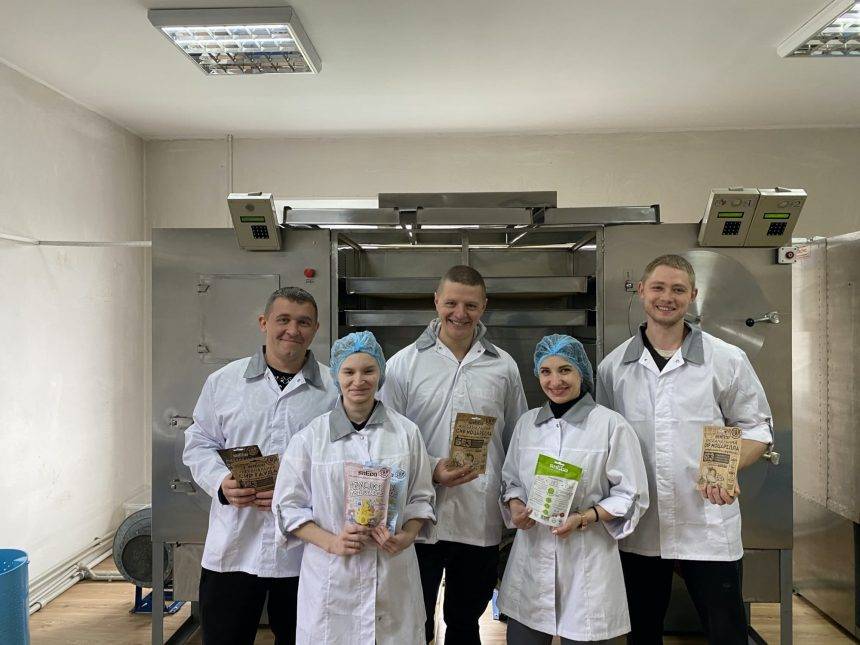
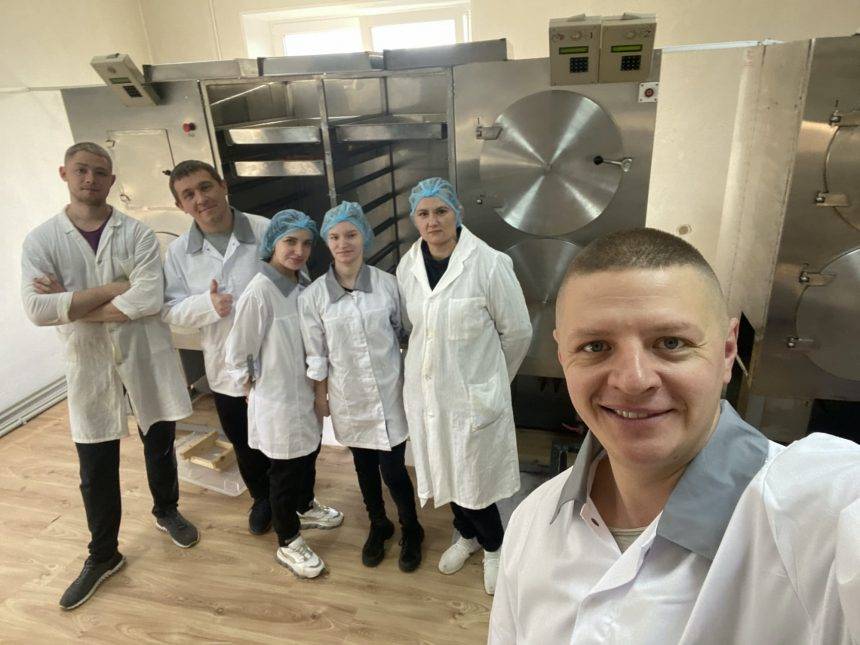
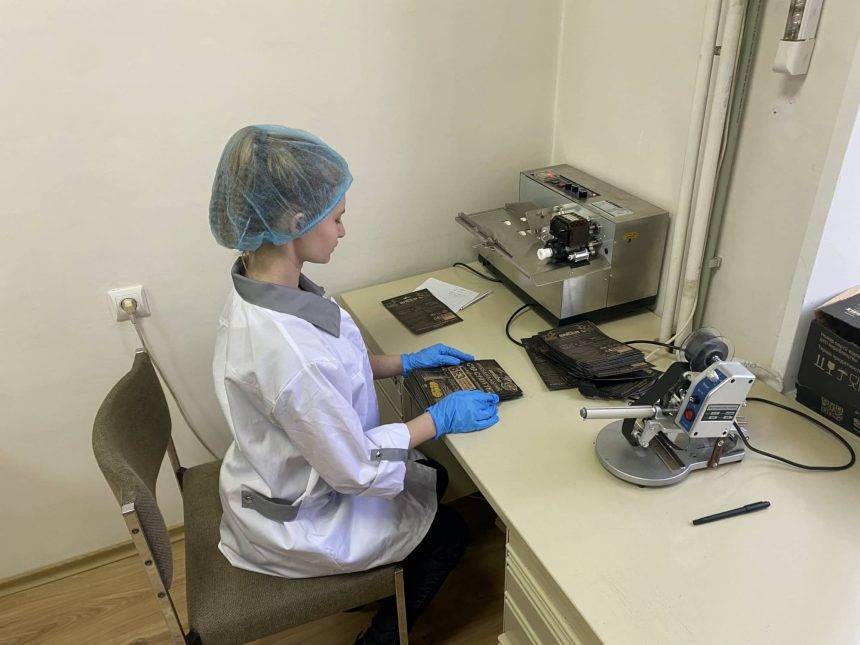
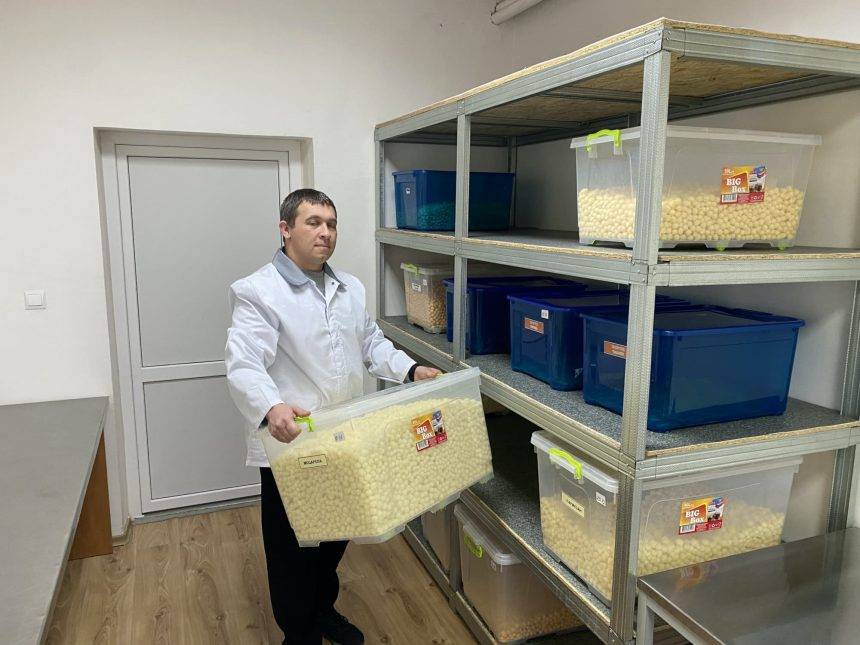
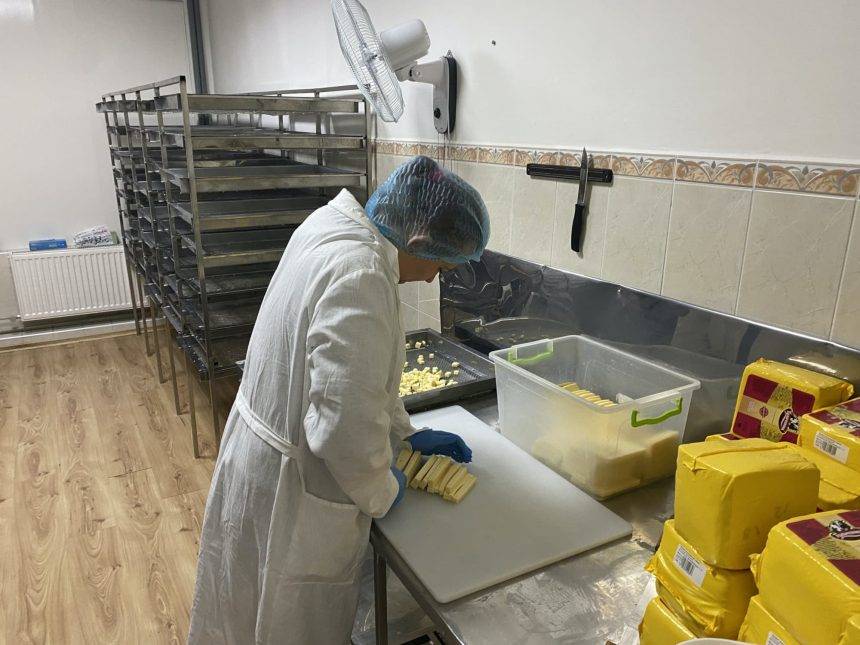
Photos: © LLC “Prime Snack”, authors — Oleg Siomochkin and Pylyp Gryshyn.
Stories
-
Katarina Mathernova: If Ukraine had a human face and a human spirit, it would be 10-year-old Roman Oleksiv
-
A regional mission to drive social entrepreneurship: the story of Ksenia Kosukha
-
EU restores safe water supply for 100,000 Ukrainians affected by war
-
Promoting IT during the war: Lviv IT cluster and how EU4Digital helps
-
Frontline digitalisation: Kharkiv IT Cluster collaborations
-
How EU4Youth is driving opportunity and success among young Ukrainians